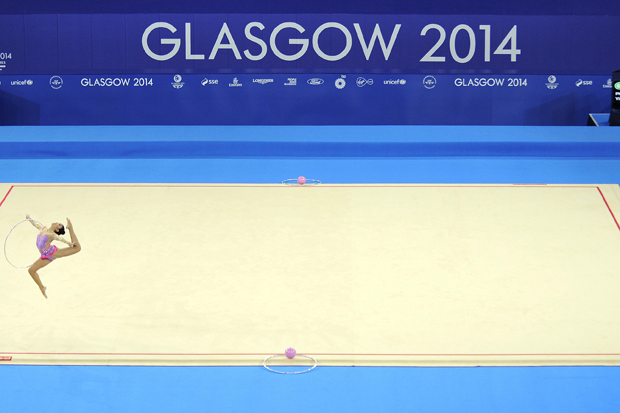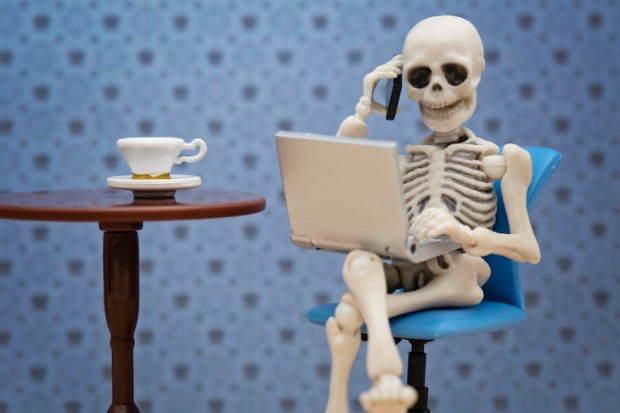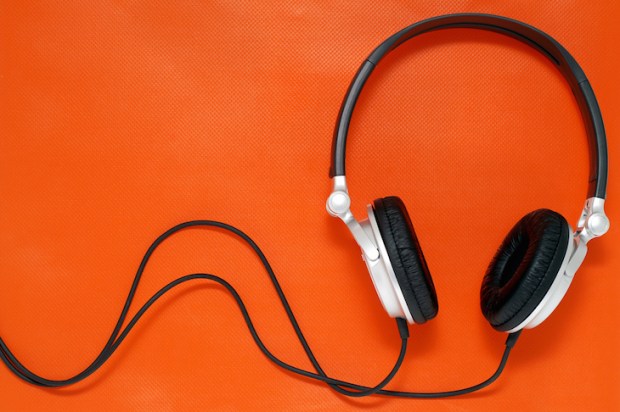What’s been missing from the schedules during the Commonwealth Games has been a straightforward reminder about who makes up the roster of nations and why. When, for instance, did it suddenly become OK to talk about the Commonwealth without that frisson of embarrassment about its origins in empire? How come there are now 53 independent member states (although for some strange reason the Glasgow Games are boasting athletes from 71 nations and territories)? Surely there were never that many colonies flying the British flag?
It’s a bit of a missed opportunity because this could be the good news story we’ve all been looking for in these weeks of relentlessly bad and worsening news. The organisation may have started out as a British attempt to patronisingly assert itself post-empire by putting itself in charge of a ‘commonwealth of nations’. But now the Commonwealth numbers among its members not-former colonies such as Rwanda and Mozambique (or rather not British colonies). It claims, too, to be a showcase for ‘friendship’ and a vehicle for ‘improving society and the general wellbeing’ of the 2.2 billion people within its orbit (that’s 30 per cent of the world’s population), by helping countries with anything from trade negotiations to women’s leadership. How did this happen? When did it become independent of British influence? Why don’t we hear more from some of the smaller Commonwealth countries such as St Kitts and Nevis or Tuvalu and Kiribati?
There were Commonwealth connections to be found in the schedules — if you looked hard. In the new Sunday series The Empire Café on Radio 4, for instance, three writers from Glasgow but with connections to the Commonwealth have been invited to look back at the Scottish city’s connections with their homelands. They focused, though, on the murky, unforgivable history of Glasgow as a key player (along with the English ports of London, Liverpool and Bristol) in the North Atlantic Slave Trade, coming up with stories about sugar, tea and ginger. The first on Sunday — written and read by Kei Miller — was such a powerful bit of storytelling it was as if he was speaking directly to me, and me only. Fifteen minutes of mesmerising radio (produced by Allegra McIlroy).
Miller called his story ‘The Business of Tea’ but it was not, as you might expect from the title, set in India or Sri Lanka but in his native Jamaica. On that island English tea was drunk by the plantation owners in the traditional way with milk and sugar but for everyone else, says Miller, tea was ‘any beverage served above room temperature’. This was especially the case at Brother Cedric’s shack, where there was tea for every ailment, from calming the nerves, lowering the sugar, relieving pressure and helping ‘to close up skin which has been opened up by whipping’. When the Missus comes to call, seeking a tea that will sort her worries about her son, the wastrel heir to the plantation, Brother Cedric has what he comes to think of as a taste of freedom. ‘To be asked a favour of a white woman and to be able to say yea or nay’ gives him something to savour, ‘like a drop of mint tea on the tongue’. It does not last long.
There are changes afoot in the way that drama is being organised on the networks. Two years ago, for instance, Radio 2 premiered its first-ever drama, Queens of Noise: Shout to the Top, a musical play about the formation of a fictional girl band The Velveteens. Now it has been repeated on Radio 4 on Saturday with an extended sequel, Queens of Noise: Get it On, running through the week as the 15-Minute Drama. Does this mean that we can expect in the next few years to see drama being shared much more between and across the networks? It’s an intriguing prospect for a licence-less future. We would then as subscribers buy into drama, or music, or news, or arts, rather than into 1, 2, 3, 4, 5 or 6.
Both dramas were by the same team of writers and directors, Louise Wener and Roy Boulter preparing the script, with a soundtrack by Brian Rawling and Marky Bates and directed by Toby Swift. But they sounded so different. Shout to the Top was all about the music, with all the songs being given a lot of airtime within the drama, as you might expect of a play written for Radio 2, where music dominates over words. Get it On on 4 was much more about the words, or rather the storylines. The ratio of dialogue to music was completely reversed. What began as two students dreaming of stardom as they wrote and played songs rather than studying has been turned into a soap about rock’n’roll chicks snorting cocaine, sleeping around and getting pregnant. They should have stuck with 2 and focused the drama on producing the songs, the rivalry between the girls, their different talents, the musical chemistry between them. That’s what made the drama different in the first place.
Got something to add? Join the discussion and comment below.
Get 10 issues for just $10
Subscribe to The Spectator Australia today for the next 10 magazine issues, plus full online access, for just $10.
You might disagree with half of it, but you’ll enjoy reading all of it. Try your first month for free, then just $2 a week for the remainder of your first year.














Comments
Don't miss out
Join the conversation with other Spectator Australia readers. Subscribe to leave a comment.
SUBSCRIBEAlready a subscriber? Log in